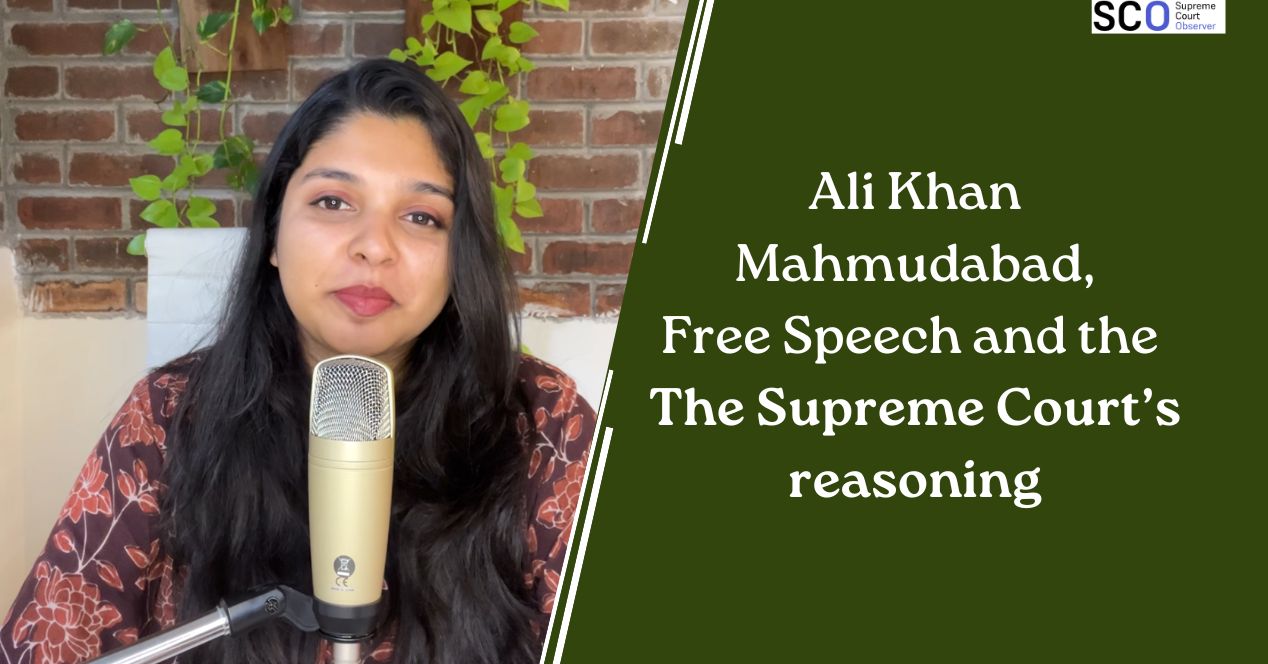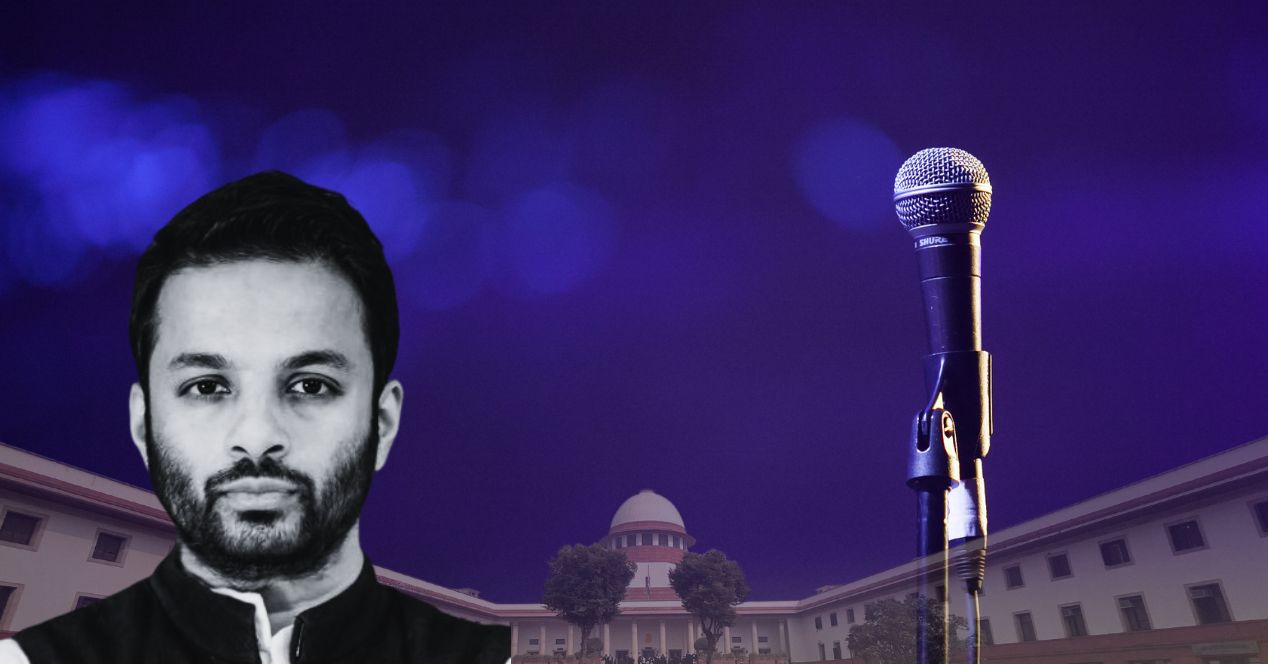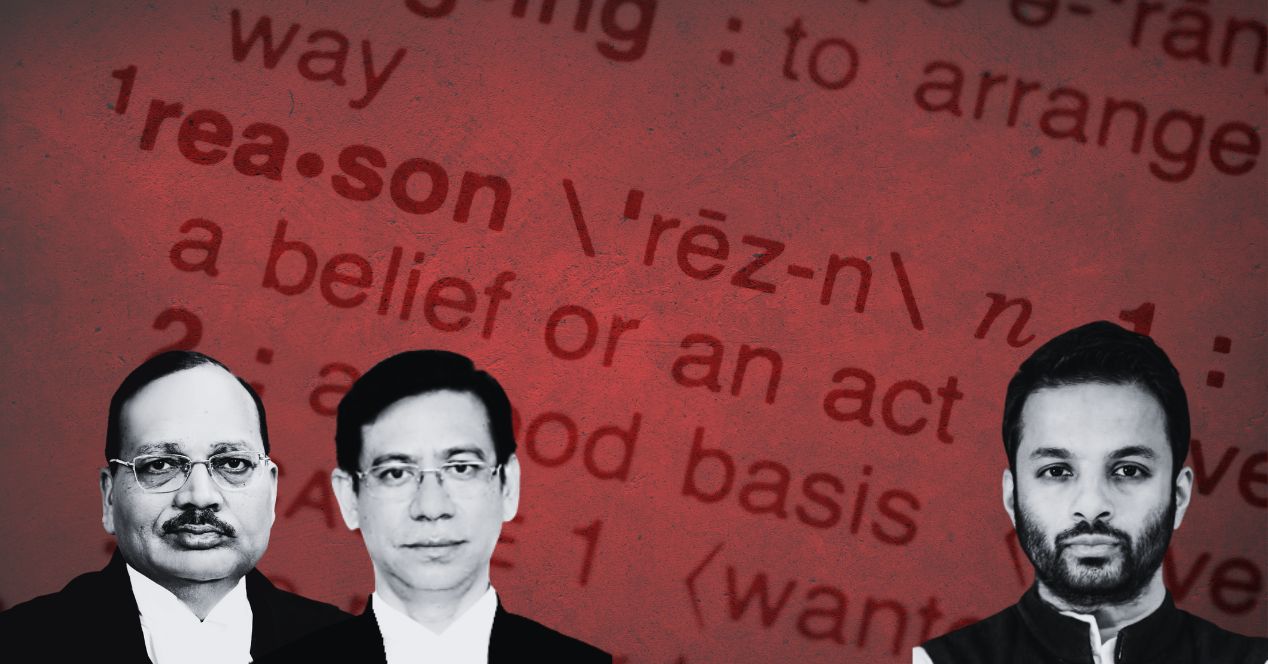Analysis
‘Persecuting people in the country, that’s what you’re doing’: Kapil Sibal asks as SC quashes FIR against professor Ali Khan Mahmudabad
The Court held that no offence by Mahmudabad was disclosed in the FIR, barred the courts from taking cognisance of the chargesheet

Today, the Supreme Court quashed all proceedings arising out of one of the FIRs registered against Ashoka University professor Ali Khan Mahmudabad in connection with his Facebook post on Operation Sindoor. A Bench of Justices Surya Kant and Joymalya Bagchi directed that no cognisance be taken of the chargesheet filed against Mahmudabad in the other FIR.
Senior Advocate Kapil Sibal and Advocate Nizam Pasha appeared for Mahmudabad. Additional Solicitor S.V. Raju appeared for the Haryana Police.
In the previous hearing
On 21 May 2025, the Court granted interim bail to Mahmudabad while allowing investigation to proceed. That day, Sibal read out Mahmudabad’s Facebook post, which praised the appointment of Muslim women Army officers as evidence of secular vision. He had urged the right wing to oppose lynchings and home demolitions as strongly as they had supported Colonel Sofia Qureshi.
Justice Kant had expressed concern that such remarks amounted to “dog whistling” after the Pahalgam attacks and questioned the limits of free speech. The Court also examined an FIR by the Haryana Women’s Commission alleging insult to women Army officers.
Granting bail, it directed Mahmudabad to surrender his passport, avoid public comment on the attacks or Operation Sindoor, and constituted a three-member SIT of senior IPS officers, including one woman, from outside Haryana and Delhi.
What is the offence Mahmudabad has committed, Counsel asks
Calling the FIRs and the Court’s intervention “most unfortunate,” Senior Advocate Kapil Sibal urged the Court to ask the prosecution to clearly specify the offences that Mahmudabad was charged with. He reminded the Court that the State had been directed to place the chargesheet before the Bench and argued that none of the allegations mentioned any offences under law.
Responding to Raju’s request to club the two FIRs filed against Mahmudabad, Justice Kant noted that there was nothing in either FIR, and asked the state why it sought to club it in the first place. Raju responded that while one FIR had been closed, the other had resulted in a chargesheet as the offence was said to be made out.
Sibal pointed out that the chargesheet invoked Section 152 of the Bharatiya Nyaya Sanhita, 2023. Section 152 deals with “acts endangering sovereignty, unity and integrity of India.” He remarked that provisions such as Section 152 presented this pervasive problem of being widely misused. The provision is often considered the ‘new sedition law’. It covers secession, armed rebellion or subversive acts, and prescribes a punishment of life imprisonment or imprisonment up to seven years with a fine.
Directing his remarks at the Raju, Sibal said, “Persecuting people in the country, that’s what you’re doing.”




